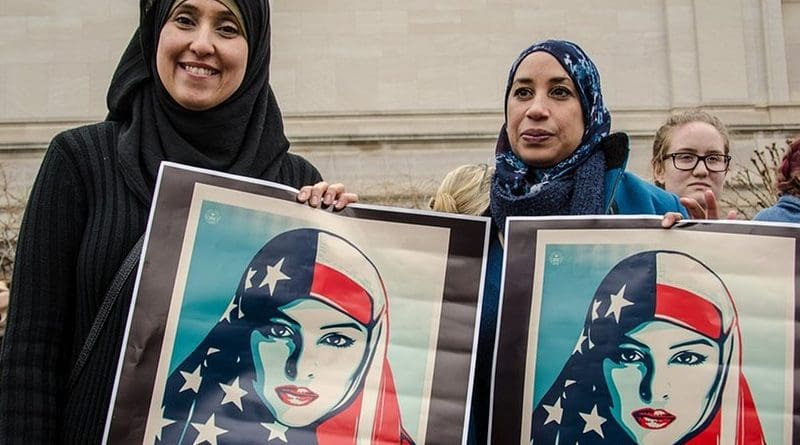Arab Americans Want To Be Empowered, Not Labeled As ‘MENA’ – OpEd
By Ray Hanania
President Joe Biden’s administration this month authorized a review by the US Office of Management and Budget with the purpose of revising the process used to identify race and ethnicity in America. The process will take two years to complete, according to Chief Statistician Dr. Karin Orvis.
Basically, what this means is that the government will, for the fifth time that I can remember, consider changes to America’s decennial census, which is one of the most important processes used to determine ethnic and racial power in America.
The census counts Americans but also asks them to identify themselves by race and ethnicity. As a result of people’s answers, hundreds of millions of dollars in federal funds are distributed to the recognized “minority” groups, like African Americans, Hispanics, Asians, Native Americans, Tongans, Native Hawaiians or “Other Pacific Islanders.”
Arab Americans have always been left out of the process, meaning no one really knows how many of us actually live in America. This is marginalization. Arabs have been intentionally excluded from the count because, in American politics, power is based on who is recognized, not on the ghosts who live in obscurity.
Arabs have been shoved into the category of “White,” or the mainstream population. So, while other minority groups share in the massive funding set aside to help them — money that comes from our tax dollars — Arabs get nothing. Arab Americans are left to fend for themselves.
We already have to fight against being recognized only in a negative way, mainly by the mainstream news media and a society that still knows little about us.
The recognized minority groups are strengthened not only by millions of dollars of funding, but also the fact that the census data is used to create congressional districts around concentrations of minorities, giving them an advantage when seeking election. If you are not counted, you are excluded from this process.
The pressure to include Arab Americans on the census has grown as the community has continued to thrive and become more active, even without the help from the government that other ethnic groups enjoy.
How many Arabs are in America? Estimates range from 1.4 million to 4.5 million. But I believe it is even more than that. No one can be accurate on that number because Arab Americans are not being counted. We can write our ethnicity under “Other,” but that is an additional step in a complex, discouraging bureaucratic process. I am not “Other,” I am Arab.
As our community’s voice grows, the anti-Arab movement has come up with a new way to keep us marginalized. Instead of designating us as “Arab,” they want to include us as “MENA,” for Middle East or North Africa.
There is a subtle difference between being called Arab and being called MENA. Arab is very specific, while MENA is a blur of hundreds of subgroups who live in the 22 Arab world countries.
MENA may be disassociated from the negative stereotypes of being Arab in America, but it is also disassociated from the empowerment that would be given to the word “Arab” if we were included in the census in that manner.
Recognizing the word “Arab” would empower Arabs and give us our first opportunity to demand representation in Congress for those areas where Arab populations exist. Right now, those populations are sliced and diced into several congressional districts, so our voting voice is significantly weakened.
I estimate that, if Arabs were treated the same way as Hispanics, we would have 20 additional districts where Arab empowerment would be nurtured. I also believe that, with proper funding, the voice of Arab Americans would be augmented tremendously. We would be louder and more visible through community activism, culture and the currently weakened Arab American media.
Today, few hear our voices. And if we are labeled as MENA, which is more amenable to the mainstream political powers that fear an increase in Arab American empowerment, our voices will be diluted even further.
“MENA” is a construct of individuals who understand how to undermine community-based power. Many Arab Americans and Muslims have embraced it because we have gotten used to accepting whatever we can get, which is often nothing. The politicians throw breadcrumbs at us and tell us that they are bread. They are not.
I am proud to be Arab. I want to advocate for Arabs, not MENA, and I want the rest of America to give me my share of what I have put into this country. I am not asking for special treatment. I am asking for fair treatment.
I am Arab and I will not be told to accept anything less. Arab Americans should not accept anything less either. We must fight for our rights, as Arabs.

